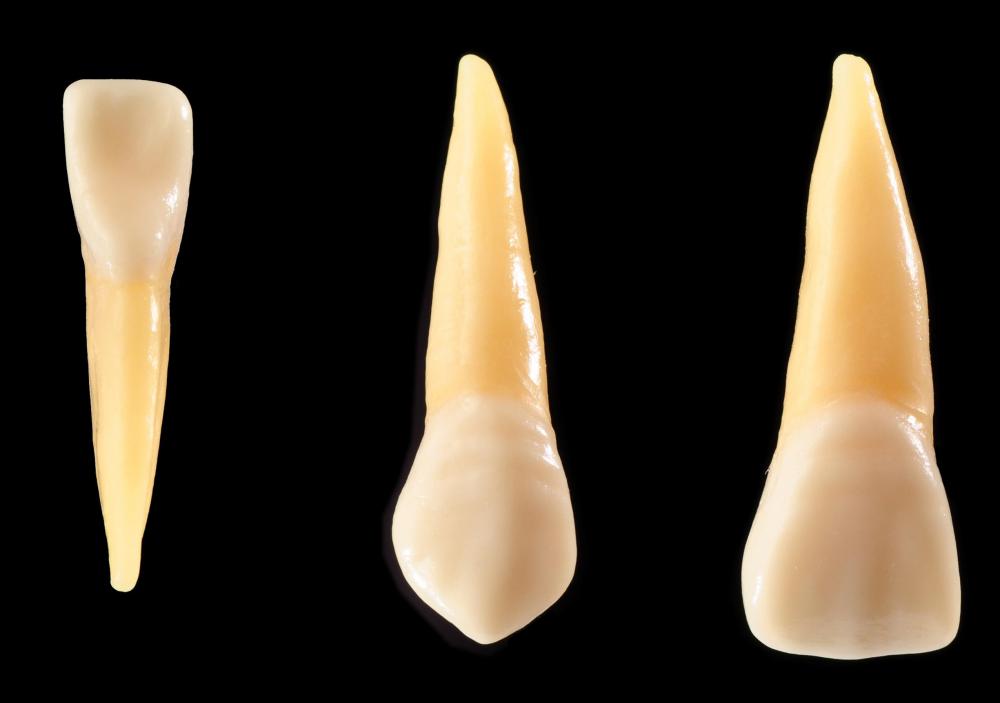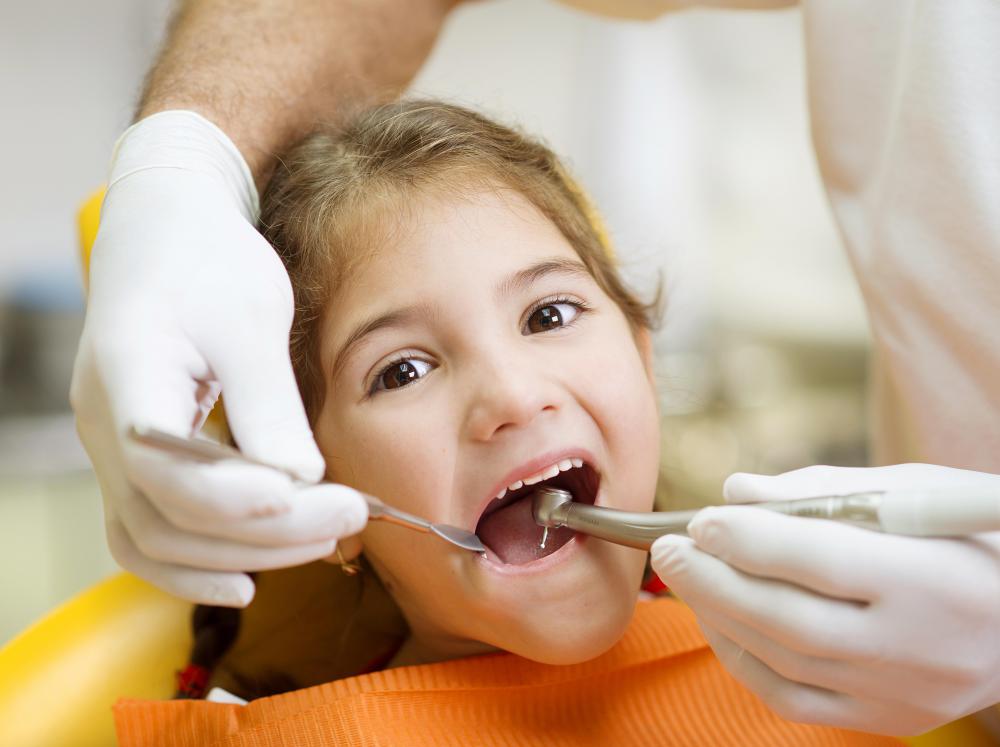At TheHealthBoard, we're committed to delivering accurate, trustworthy information. Our expert-authored content is rigorously fact-checked and sourced from credible authorities. Discover how we uphold the highest standards in providing you with reliable knowledge.
What is Dentinogenesis Imperfecta?
Dentinogenesis imperfecta is a genetic disorder that causes the teeth to be especially brittle and discolored. The name refers to poor or abnormal development of the internal material found in teeth, called dentin. Dentinogenesis imperfecta tends to affect both baby and permanent teeth, and many patients who acquire the condition also suffer from brittleness and deformities in their bones. There is currently no cure for the disorder, but cosmetic dental procedures are available to improve the appearance and function of the teeth.
Researchers have identified several very specific genes that contribute to the growth of hard tissues in the body, including the dentin and enamel that make up teeth. When a particular gene is mutated or inactivated, it is unable to produce the proteins needed to form strong, hard dentin. Most cases of dentinogenesis imperfecta are inherited in an autosomal dominant pattern, which refers to the fact that only one of a child's parents must carry a mutated copy of the gene in order for it to be passed down.

Most cases of dentinogenesis imperfecta are recognizable in early childhood once the primary teeth start to grow. They are typically smaller than average baby teeth and have a jagged appearance. Teeth often have a gray, brown, or yellow tint, and they may appear to be partially translucent because the outer enamel layer is very thin. Children with dentinogenesis imperfecta tend to lose their teeth at an earlier age than their peers.

When permanent teeth grow in, they share the same unusual characteristics. Adolescents and adults with the condition are prone to breaking their teeth easily. Poorly aligned teeth usually cannot be corrected by traditional techniques such as braces because they are too brittle. Permanent teeth may start to fall out as early as the third or fourth decade of life.

A dentist or pediatrician can diagnose dentinogenesis imperfecta based on the physical appearance of the teeth. Genetic blood tests may be performed to confirm the presence of mutated genes. Dentinogenesis imperfecta can sometimes be a symptom of a larger underlying disorder called osteogenesis imperfecta, which impairs the body's ability to build and maintain strong bones. Full-body x-rays are often taken to confirm or rule out bone involvement in patients who are originally seen for teeth problems.

Treatment for dentinogenesis imperfecta depends on the severity of the condition and the age of the patient. In many cases, doctors prefer to wait until permanent teeth grow in before making treatment decisions. Options include covering damaged teeth with a synthetic form of enamel or fitting crowns on especially delicate or broken teeth to protect them. In some cases, teeth are removed completely and replaced with permanent artificial implants.
AS FEATURED ON:
AS FEATURED ON:















Discuss this Article
Post your comments